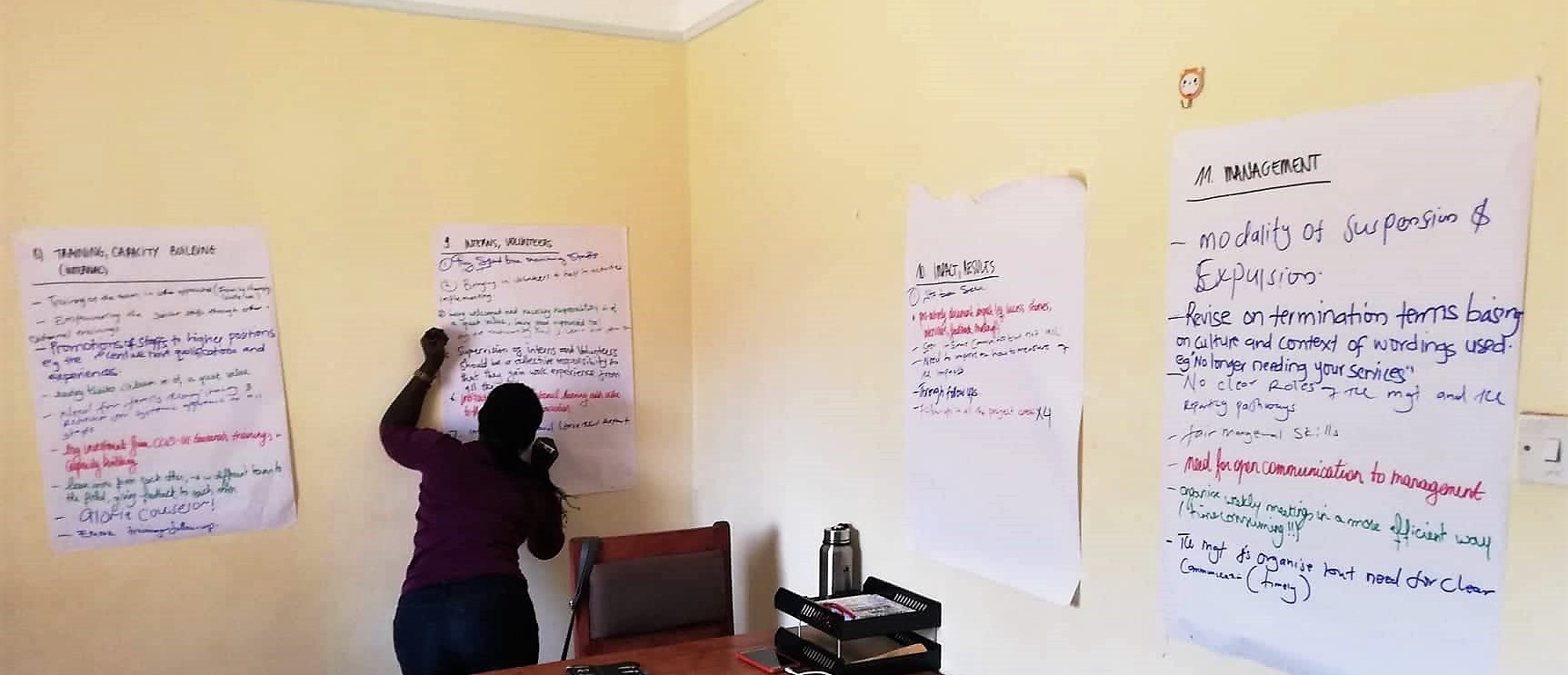UPBRINGING IN A CONTEXT OF PROLONGED COLLECTIVE VIOLENCE
Country
Uganda
01-01-2014 - 24-12-2017
Special Research Fund (Ghent University)
War has impacted and still impacts the lives of millions of people all over the world. Armed conflicts lead to the destruction of country’s economies, infrastructure, and educational and health systems, largely impact individuals’ physical and mental health, and destroy communities’ social fabric. Even in a post-conflict context, families still experience difficult living circumstances, high levels of emotional problems are reported, and important rates of domestic and intra-familial sexual violence are observed. This involves that developmental processes of children and youth who grow up in long-lasting warfare might be considerably affected by these armed conflicts.
SOCIAL CONTEXT
Since parenting ideas and practices are considered to be largely context specific, and parents thus adapt their parenting to socio-economic, cultural and historical influences, we hypothesize that also circumstances of prolonged armed conflict impact parental ethno-theories and parenting practices. Different factors could be at stake here. First, war forces parents to adapt their parenting practices to extreme living conditions. This circumstances reduce parents’ possibilities to perform certain traditional parenting practices Second, in a context of ongoing violence, there is a heightened possibility for death or separation from a caregiver, leading to important changes in family structures. Third, war exposes civilians to difficult, possibly traumatizing, experiences, which may lead to emotional difficulties, on their turn possibly affecting the parent-child-relationship. Fourth, long-lasting violence may alter how violence and acts of violence are perceived, which might, for example, lead to increased prevalence of domestic violence or to elevated levels of sexual abuse committed by civilians in regions where rape was used as weapon of war by the military.
The study is being executed in Northern Uganda, a region affected by war between the government and the rebels of the Lord’s Resistance Army (LRA) for more than twenty years (from 1986 up till 2006). The conflict has become notorious for the extreme cruelties the LRA used against civilians, the massive abduction of children to act as child soldiers, and the displacement of the majority of the population into refugee camps for “Internally Displaced People”.
The study is being executed in Northern Uganda, a region affected by war between the government and the rebels of the Lord’s Resistance Army (LRA) for more than twenty years (from 1986 up till 2006). The conflict has become notorious for the extreme cruelties the LRA used against civilians, the massive abduction of children to act as child soldiers, and the displacement of the majority of the population into refugee camps for “Internally Displaced People”.
OBJECTIVES
Following research questions will lead our study:
(1) Are there differences between parental ideas and practices in war-affected and non-war-affected regions?
(2) How do parental ideas and practices change due to war and armed conflict?
(3) What is the differential impact of these changes according to participants’ age, gender, traumatic experiences and mental health problems?
(4) How do contexts of extreme violence (girl mothers) and forced displacement (refugee camps) change ideas and practices?
(1) Are there differences between parental ideas and practices in war-affected and non-war-affected regions?
(2) How do parental ideas and practices change due to war and armed conflict?
(3) What is the differential impact of these changes according to participants’ age, gender, traumatic experiences and mental health problems?
(4) How do contexts of extreme violence (girl mothers) and forced displacement (refugee camps) change ideas and practices?
PROJECT DESCRIPTION
The impact of war on parenting has mainly been studied amongst parents who are war veterans or ex-combatants, and illustrate how mental health problems are associated with lower levels of positive parenting, even many years after the war. Little knowledge though exists about the impact of war onto parenting when entire families, over different generations, are living in war contexts. Thus, this research aims at enhancing our knowledge regarding the impact of armed conflict and living in a context of (past) violence onto parental ideas and practices.
Study 1 aims at gaining insight into the shared cultural ideas about parental ideas and practices over different age groups in war- and non-war-affected regions in Northern Uganda. Further, we want to ensure a cultural and contextual adaptation of the questionnaires used in Study 2.
Study 2 aims at quantitatively examining the impact of armed conflict onto parenting through comparing parental ideas and practices of different age groups in war- and non-war-affected regions in Uganda.
Study 3 aims at studying parenting in two extreme circumstances of violence: in the context of female child soldiers who give birth to a child and raise the child while still in captivity with the rebel group (Study 3A), and in the context of refugee camps for Internally Displaced People (Study 3B).
Study 1 aims at gaining insight into the shared cultural ideas about parental ideas and practices over different age groups in war- and non-war-affected regions in Northern Uganda. Further, we want to ensure a cultural and contextual adaptation of the questionnaires used in Study 2.
Study 2 aims at quantitatively examining the impact of armed conflict onto parenting through comparing parental ideas and practices of different age groups in war- and non-war-affected regions in Uganda.
Study 3 aims at studying parenting in two extreme circumstances of violence: in the context of female child soldiers who give birth to a child and raise the child while still in captivity with the rebel group (Study 3A), and in the context of refugee camps for Internally Displaced People (Study 3B).
